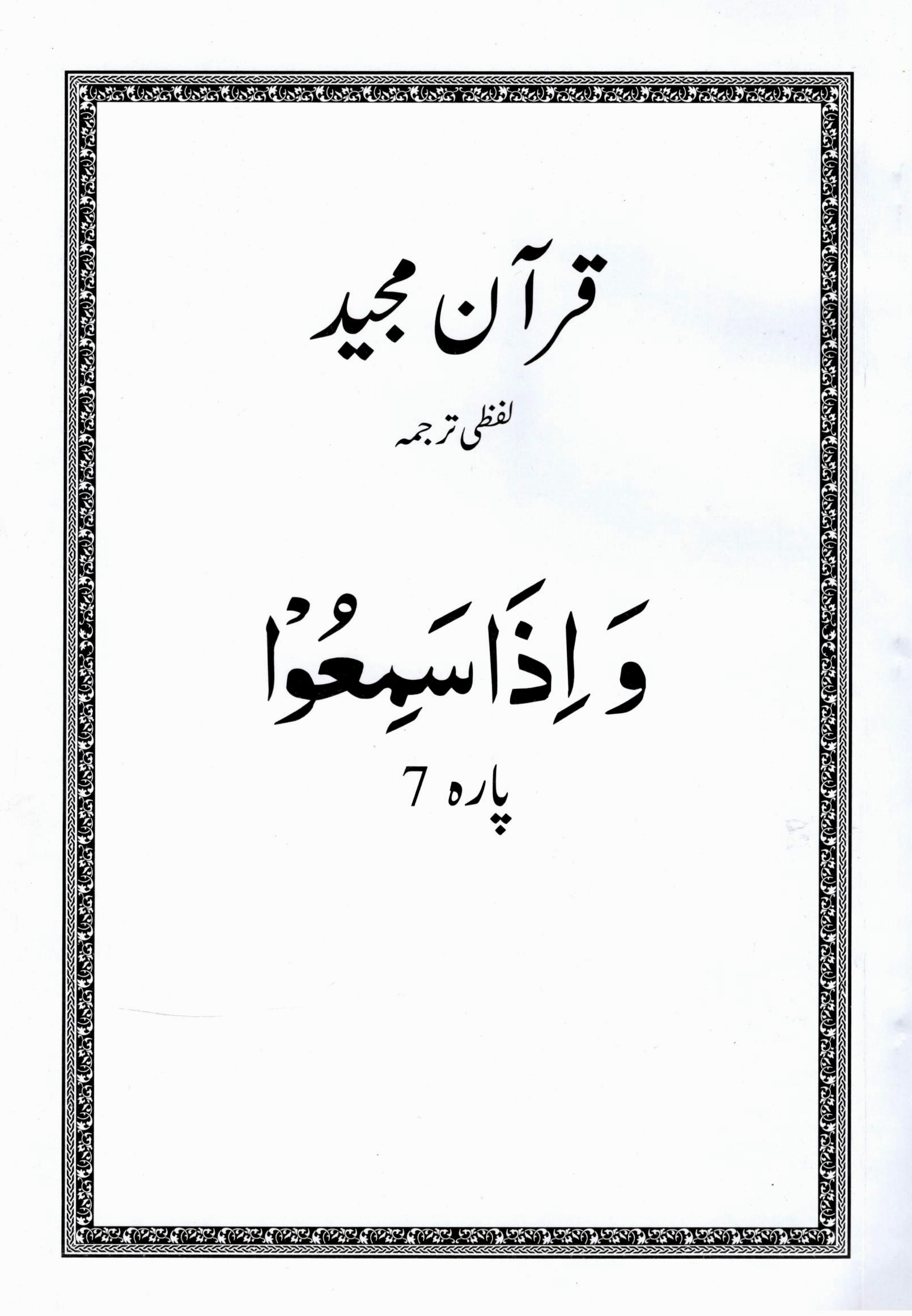The seventh “sapara” of the Quran encompasses parts of two Surahs: Surah Al-A’raf (سورة الأعراف) and Surah Al-Anfal (سورة الأنفال). Herein is a quick explanation of these two Surahs and their content within the seventh “sapara”:
Surah Al-A’raf (سورة الأعراف): The name of this Surah is derived from the word “A’raf, which occurs in verse 46; this term implies an elevated place. It consists of 206 ayaat with several topics being discussed including the stories of some earlier prophets and their nations, the Day of Judgment, the struggle between the forces of right and wrong, and the doom to be faced by the disbelievers. This Surah attracts the attention of all those who neglect divine guidance to the consequences that have suffered those who persisted in denying the revelations of All-Mighty Allah and obstinately rejected His Messengers. It also describes the mercy and forgiveness of Allah towards the repentant.
Surah Al-Anfal (سورة الأنفال): Translated as “the spoils of war” or “the bounty,” this surah consists of 75 verses and deals with the Battle of Badr between Muslims and the Quraysh tribe of Mecca. This Surah discusses the basis of warfare in Islam, the struggle of obedience, and unification of believers, including the distribution of spoils. Furthermore, this Surah focuses on reliance upon Allah and steadfastness during trials and battles.
Check Out: SURAH MULK QURAN 411 | 2024
In a nutshell, the seventh “sapara” of the Quran comprises parts of Surah Al-A’raf and Surah Al-Anfal; therefore, it contains a number of discussions on faith, guidance, and historical narration.ives, moral lessons, and principles related to warfare and conflict resolution in Islam.

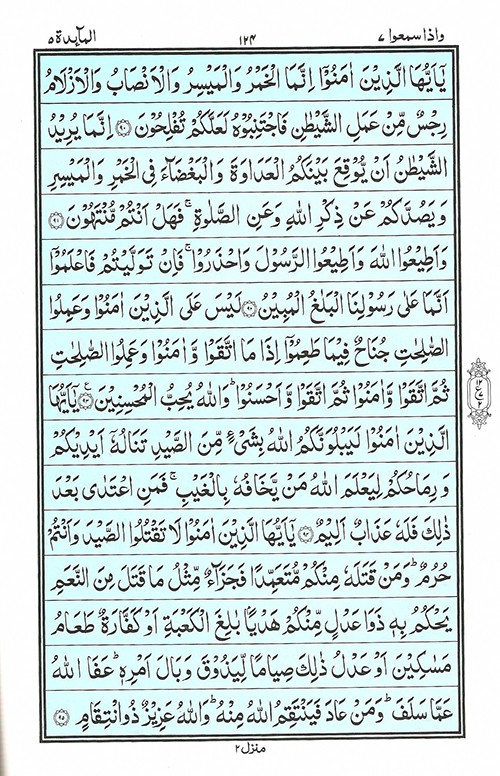

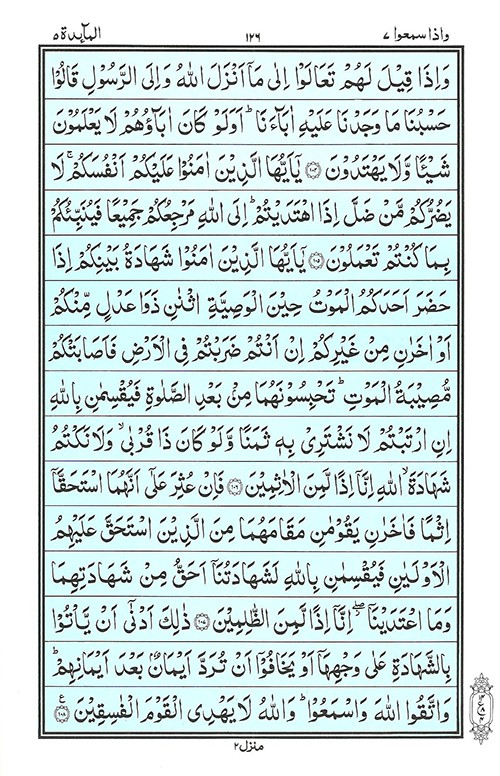



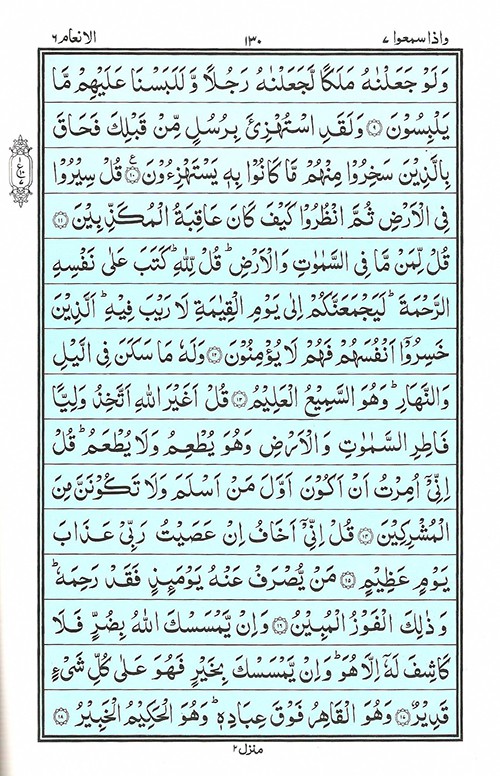

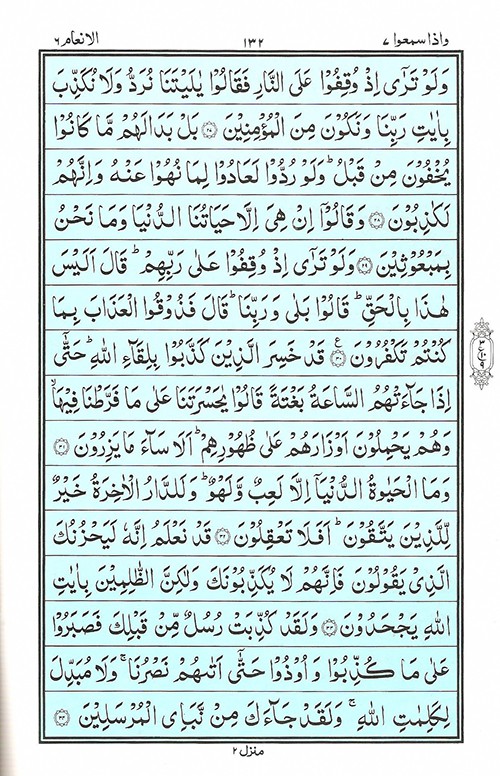
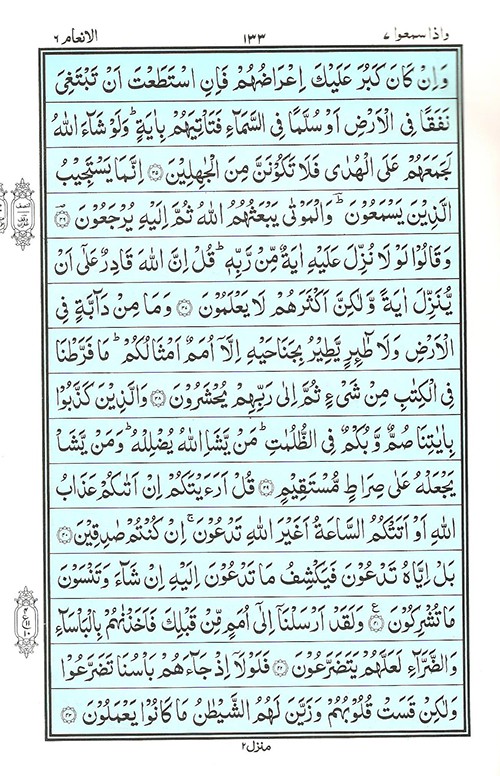
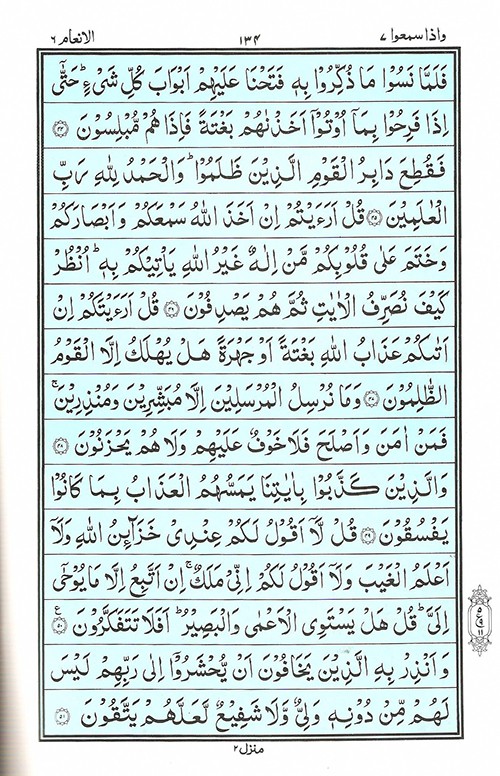

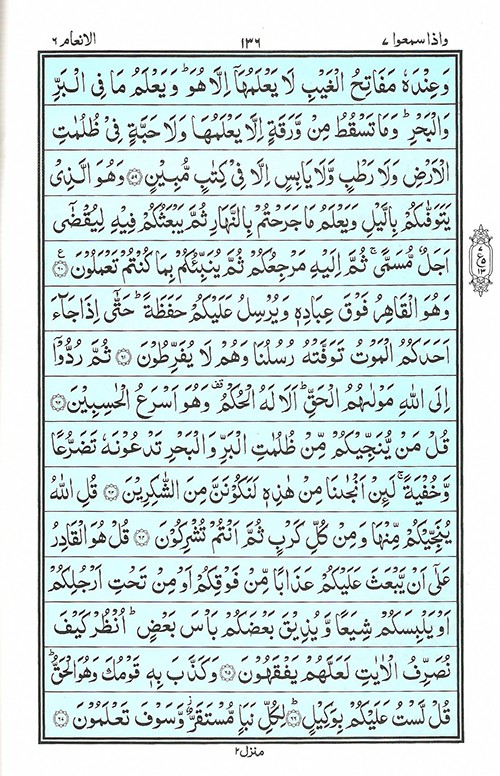
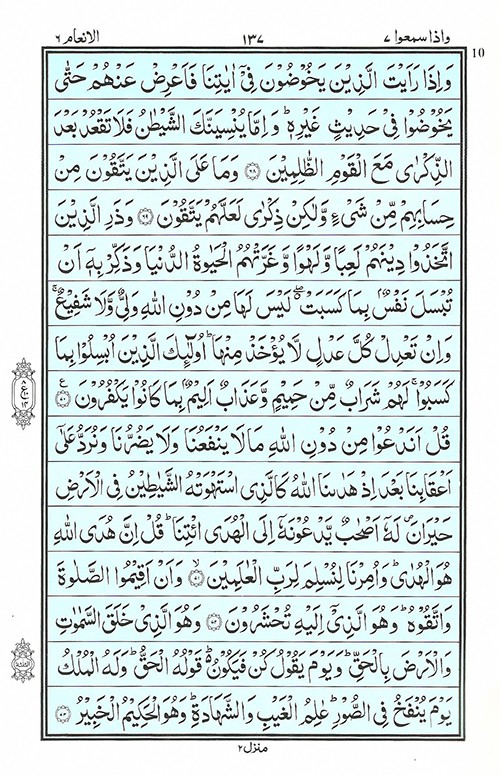
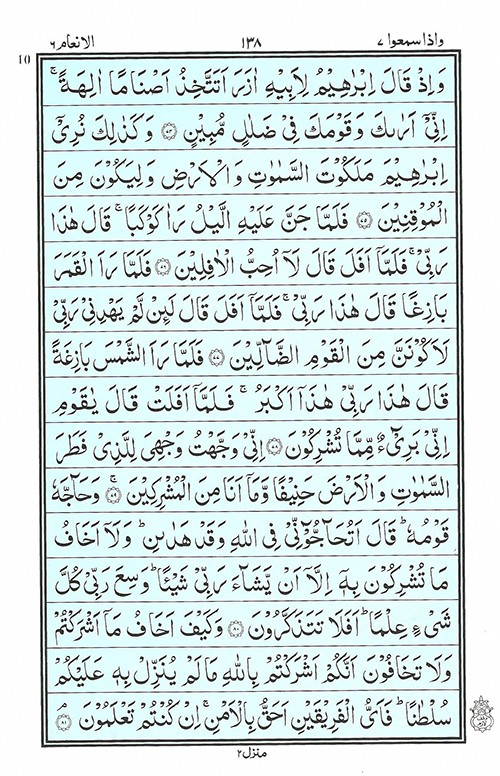

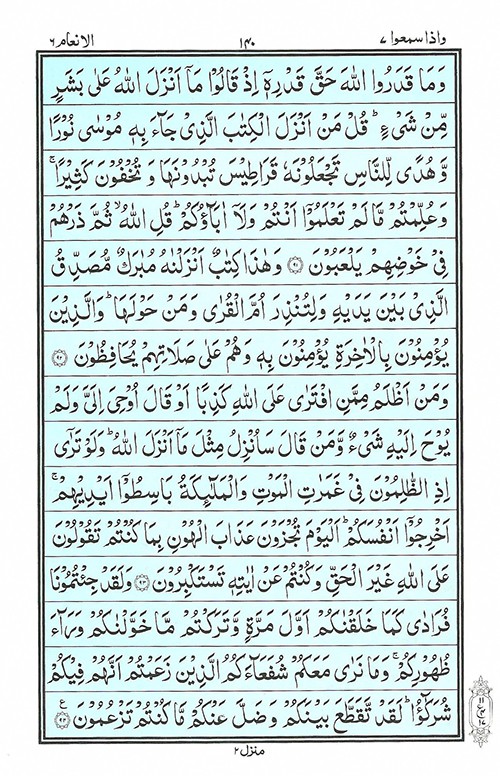
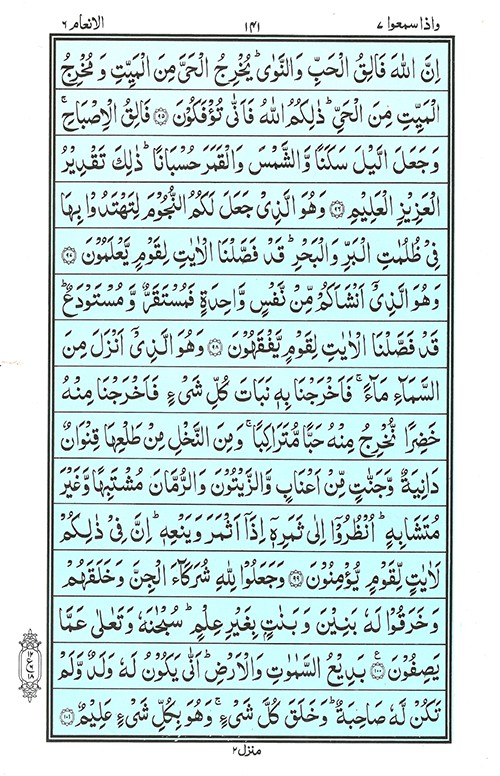
The seventh “sapara” of the Quran, spanning portions of Surah Al-A’raf and Surah Al-Anfal, offers profound insights into various aspects of faith, guidance, historical events, moral lessons, and principles related to warfare and conflict resolution in Islam. Here’s a brief conclusion and some frequently asked questions (FAQs) regarding this section:
Conclusion:
The seventh “sapara” of the Quran serves as a rich source of guidance and wisdom for believers. It emphasizes the importance of following divine guidance, repentance, and steadfastness in faith. The stories of past prophets and their communities underscore the consequences of disbelief and disobedience, as well as the mercy and forgiveness of Allah for those who turn to Him in repentance. Furthermore, the section provides practical guidance on matters of warfare, emphasizing principles such as obedience, unity, trust in Allah, and the ethical distribution of spoils.
FAQs:
1. What is the significance of Surah Al-A’raf?
Surah Al-A’raf addresses various themes, including the stories of past prophets, the Day of Judgment, and the consequences of disbelief. It highlights the importance of following divine guidance and the mercy of Allah for those who repent.
2. What are the main themes of Surah Al-Anfal?
Surah Al-Anfal primarily deals with the Battle of Badr and the principles of warfare in Islam. It emphasizes obedience, unity among believers, trust in Allah, and the ethical distribution of spoils.
3. How can believers benefit from studying the seventh “sapara” of the Quran?
Studying this section enables believers to deepen their understanding of faith, guidance, and moral principles outlined in the Quran. It offers practical insights into navigating challenges, maintaining steadfastness in faith, and upholding ethical conduct, both in personal matters and societal interactions.
4. What lessons can be derived from the stories of past prophets mentioned in Surah Al-A’raf?
The stories of past prophets serve as valuable lessons in faith, resilience, and perseverance. They illustrate the challenges faced by prophets and their communities, the consequences of disbelief, and the importance of obedience to divine commandments.
5. How does Surah Al-Anfal address the principles of warfare in Islam?
Surah Al-Anfal outlines principles such as obedience, unity, and trust in Allah during times of conflict. It emphasizes the ethical conduct of warfare, including the humane treatment of captives and the just distribution of spoils.
In conclusion, the seventh “sapara” of the Quran offers comprehensive guidance and wisdom for believers, addressing a wide range of spiritual, moral, and practical aspects of life. Studying and reflecting on its verses can deepen one’s faith, strengthen moral character, and provide guidance in navigating life’s challenges with integrity and righteousness.

AoA, my name is Abd al-Rahman, and my vision is to spread the knowledge of the Quran to everyone. I am proud and tall while standing as your trusted mentor on the journey of learning and memorizing the Holy Quran. I, along with a committed team of Islamic teachers, am bound to provide an easy online facility for Islamic studies and Hifz programs.

